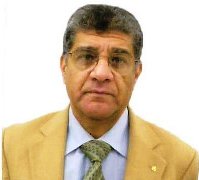Late last week Egyptian Copts in Cairo booked private airline flights to Jerusalem to celebrate Easter holy week. Soon after, the joy they anticipated turned to anger when they faced rejection by a Coptic priest at the door of Jerusalem’s Saint Helena Chapel on Coptic Palm Sunday. This unlikely denial is understood only by comprehending the unlikelihood of the trip, for it was the first of its kind (a direct flight from Cairo airport to Ben Gurion airport) since the Israel-Egypt Peace Treaty of 1979 signed by Sadat. Unfortunately, for Egyptian Copts, the intervention of an edict issued by their Pope Shenouda III in the same year known as, “the law that forbids Copts to travel to Jerusalem,” superseded the peace treaty.
Paving the Coptic Way to Jerusalem
Ashraf Ramelah
Article Of The Day
00:04
Thursday ,19 April 2012

Days before the holy weekend hundreds of church members disregarded the longstanding prohibition issued by the late Pope forbidding all pilgrimages by Copts to Jerusalem’s holy sites. They were wrong to perhaps believe that, in the few weeks since their Pope’s death, their bishops and priests would overturn or overlook church policy set by the Pope. To the chagrin of many Copts, the church remains in the grip of the Pope’s unsettling anti-Semitic 1979 edict prohibiting Copts to visit Israeli “occupied” Jerusalem.
Their story was reported by the Egyptian newspaper, Al Youm el Sabeh, as well as Egypt Independent.com which stated that the Saint Helena Chapel Priest Misael stood his ground against Copts attempting entry, indicating that the Pope’s order barring visiting Copts must be respected. The late Pope’s political and longstanding pro-Muslim bias remains intact with the current acting Pope, Bishop Pachomius, who is reported as planning to continue to “follow in the footsteps” of Pope Shenouda III with regard to “national and Arab causes” (see Ramadan Al Sherbini, Egypt Independent.com, 4/8/12).
The late Pope Shenouda III was the out-spoken spiritual head of the Coptic Orthodox Church for the past forty years who curiously positioned the church against Christian teachings when he sided with the Egyptian Arab-Muslim point of view regarding the “liberation” of Jerusalem. His well-known quote “Copts will only enter Jerusalem hand-in-hand with their Muslim brothers” injected an unfortunate and inexcusable rationale which resulted in coldness toward Jews and has led to a deep divide between Copts and Jews.
Now is our opportunity to reverse the wrong. We must remember who we are. Apostle Mark who walked with Jesus and authored the Gospel of the same name founded Christianity in Alexandria and planted the noble yet humble origins on which the Coptic Church is based. The power invested in the authority of the Pope as the highest ordination of the Coptic Church and his responsibility as overseer, naturally made his directive final, backing the believer into a corner. Yet we must forgive the past and set a new course for the future based upon a spiritual and biblical teaching.
It should come as no surprise to find Egyptian news commentary relish in the upheld ban and malign Copts. Included in the fray was chief editor of Al Youm el Sabeh, Kaled Salah, in an op-ed article describing Copts in their trip to Jerusalem as “in one word, foolish” (see www1.youm7.com/News.asp?NewsID=646854&SecID=12). In spite of the fact that Christian Copt, Nagib Sawerers, is majority shareholder of the newspaper and his employer, Salah labeled the Copts as “animal carcass,” -- the accurate translation (correcting “foolish”) for the Egyptian Arabic word he used. Furthermore, his viewpoint is consistent with the official Islamic Egyptian position which led to blocking Jews from visiting Abu Hatzira’s tomb, a holy site in Egypt, a few months back (see www.haaretz.com/news/middle-east/egypt-tells-israel-pilgrimage-to-tomb-of-jewish-holy-man-impossible-this-year-1.406709).
In a speech I gave at the Faith under Fire Conference in Chicago one week before the Pope’s death, I emphasized that the Coptic faith is under fire from within the Coptic Church particularly with the church policy instituted by Pope Shenouda III in his edict of 1979. It has only served to instigate tensions between Copts and Jews. In the past thirty-four years since its enactment, the church hierarchy selectively approved certain members for occasional visits to Jerusalem while disapproving all others, holding fast to the Pope’s decision and going as far as to withhold church sacraments as punishment – much like what Priest Misael did last week at the Jerusalem chapel.
Instead of issuing primitive rulings to join with and please the Islamic majority opinion feeding into anti-Semitic narratives taught to children in elementary school text books, the church’s role is to dispel this embedded prejudice through the teachings of Christian theology. The 1979 edict was nothing more than political maneuvering as it found favor with Muslims; and even worse, it opened the door for Muslim commentary on internal Coptic religious matters even as recently as last week in the wake of the Pope’s death. Ironically, as Muslims continue to voice their endorsement of this church edict, Coptic members prepare for journeys to Jerusalem by applying to Israel for visas, reportedly as many as 10,000 just recently.
In the months ahead, a new spiritual leader will be chosen by the church. The next Coptic Pope will be just that, not a pundit, not a parliamentarian; and he will have the chance to remove the 1979 edict and set the church free of unnecessary encumbrances and lead as the spiritual head. For almost two millenniums, the Coptic Church in Egypt has withstood persecution, first by the Romans and then by Islam, and not by playing politics but by prayer and deep abiding faith in the living God. Our next Pope must spiritually guide our people through the storm of today’s rise of Islamic intolerance. Political edicts, compromises, and political correctness will not bring about peace for Copts but instead turn us into our own enemy.



